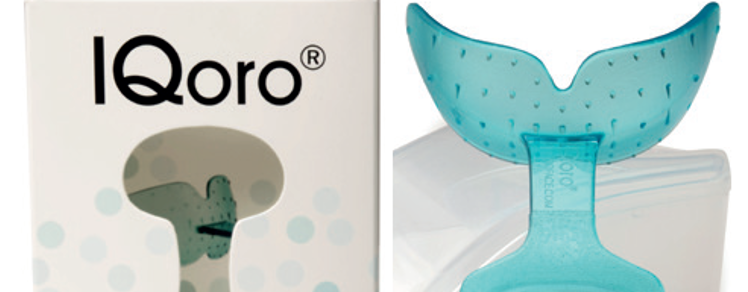
Post-hoc analysis found 75% of patients from CLARITY and CLARITY Extension showed no disability progression at five years post-treatment
No new safety findings from up to 10 years of clinical programme follow-up and post-approval data following the launch of MAVENCLAD in 2017
Merck announced the presentation of new data for MAVENCLAD® (cladribine tablets), which further characterise the long-term efficacy and safety profile. These data were shared at the 35th Congress of the European Committee for Treatment and Research in Multiple Sclerosis (ECTRIMS), taking place from 11–13 September, 2019, in Stockholm, Sweden.
Our commitment to further understand the long-term efficacy and safety of MAVENCLAD goes beyond the safety profile seen in its clinical development programme, which includes up to 10 years of safety follow-up in some patients. The data we are presenting at ECTRIMS 2019 exemplify this. They include key insights from real-world follow-up of patients from our clinical trials and the post-approval setting for MAVENCLAD, further validating it as an important treatment option available to patients in 69 countries worldwide.
Luciano Rossetti, Head of Global Research & Development for the biopharma business of Merck
Results from a post hoc analysis (EP1573) evaluating five-year disease stability demonstrated sustained efficacy of cladribine tablets on disability progression, as measured by the Expanded Disability Status Scale (EDSS). According to study findings, 75% of patients showed stable or improved EDSS at five years post-treatment. The exploratory analysis was based on patients treated with cladribine tablets in CLARITY and then placebo in CLARITY Extension, with at least one post-baseline EDSS measurement.
Results were presented from a retrospective analysis (P617) of real-world follow-up data from an Italian multiple sclerosis (MS) registry, consisting of patients with clinically isolated syndrome or relapsing forms of MS who received at least one course of MAVENCLAD in the original clinical trial programme. At five years after receiving the last dose of MAVENCLAD, nearly two-thirds of patients (64%) had no disability progression and more than half of the patients (57%) were free of relapse.
These data show us that MAVENCLAD continues to display sustained efficacy in a majority of patients at five years after starting treatment and that these results are consistent with data we are seeing from real-world experience. As a neurologist, this is important for me to see, as it shows that findings from the clinical development programme of MAVENCLAD will be borne out in clinical practice.
Prof. Gavin Giovannoni, a lead investigator in the CLARITY studies and Chair of Neurology, Barts and The London School of Medicine and Dentistry
In addition, final results (P1390) from the PREMIERE safety registry allowed for a thorough characterisation of the long-term safety profile of MAVENCLAD and showed no new safety findings. Furthermore, post-marketing data in the first 8,419 patients treated with MAVENCLAD worldwide were consistent with the safety profile seen in the MAVENCLAD clinical development programme, with no increase in incidence of adverse events from original clinical programme findings.
*About MAVENCLAD®
MAVENCLAD® is a short-course oral therapy that selectively and periodically targets lymphocytes thought to be integral to the pathological process of relapsing MS (RMS). In August 2017, the European Commission (EC) granted marketing authorization for MAVENCLAD® for the treatment of relapsing forms of multiple sclerosis (RMS) in the 28 countries of the European Union (EU) in addition to Norway, Liechtenstein and Iceland. MAVENCLAD® has since then been approved in 69 countries, including Canada, Australia and the U.S. Refer to the respective prescribing information for further details.
The clinical development programme for cladribine tablets includes:
The CLARITY (Cladribine Tablets Treating MS Orally) study: a two-year Phase III placebo-controlled study designed to evaluate the efficacy and safety of cladribine tablets as a monotherapy in patients with RRMS.
The CLARITY extension study: a Phase III placebo-controlled study following on from the CLARITY study, which evaluated the safety and exploratory efficacy of cladribine tablets over two additional years beyond the two-year CLARITY study, according to the treatment assignment scheme for years 3 and 4.
The ORACLE MS (Oral Cladribine in Early MS) study: a two-year Phase III placebo-controlled study designed to evaluate the efficacy and safety of cladribine tablets as a monotherapy in patients at risk of developing MS (patients who have experienced a first clinical event suggestive of MS).
The ONWARD (Oral Cladribine Added ON to Interferon beta-1a in Patients With Active Relapsing Disease) study: a Phase II placebo-controlled study designed primarily to evaluate the safety and tolerability of adding cladribine tablets treatment to patients with relapsing forms of MS, who have experienced breakthrough disease while on established interferon-beta therapy.
PREMIERE (Prospective Observational Long-term Safety Registry of Multiple Sclerosis) study: a long-term observational follow-up safety registry of MS patients who participated in cladribine tablets clinical studies.
In the two-year CLARITY study, the most commonly reported adverse event (AE) in patients treated with cladribine tablets was lymphopenia (26.7% with cladribine tablets and 1.8% for placebo). The incidence of infections was 48.3% with cladribine tablets and 42.5% with placebo, with 99.1% and 99.0% respectively rated mild-to-moderate by investigators. Adverse Events reported in other clinical studies were similar.



